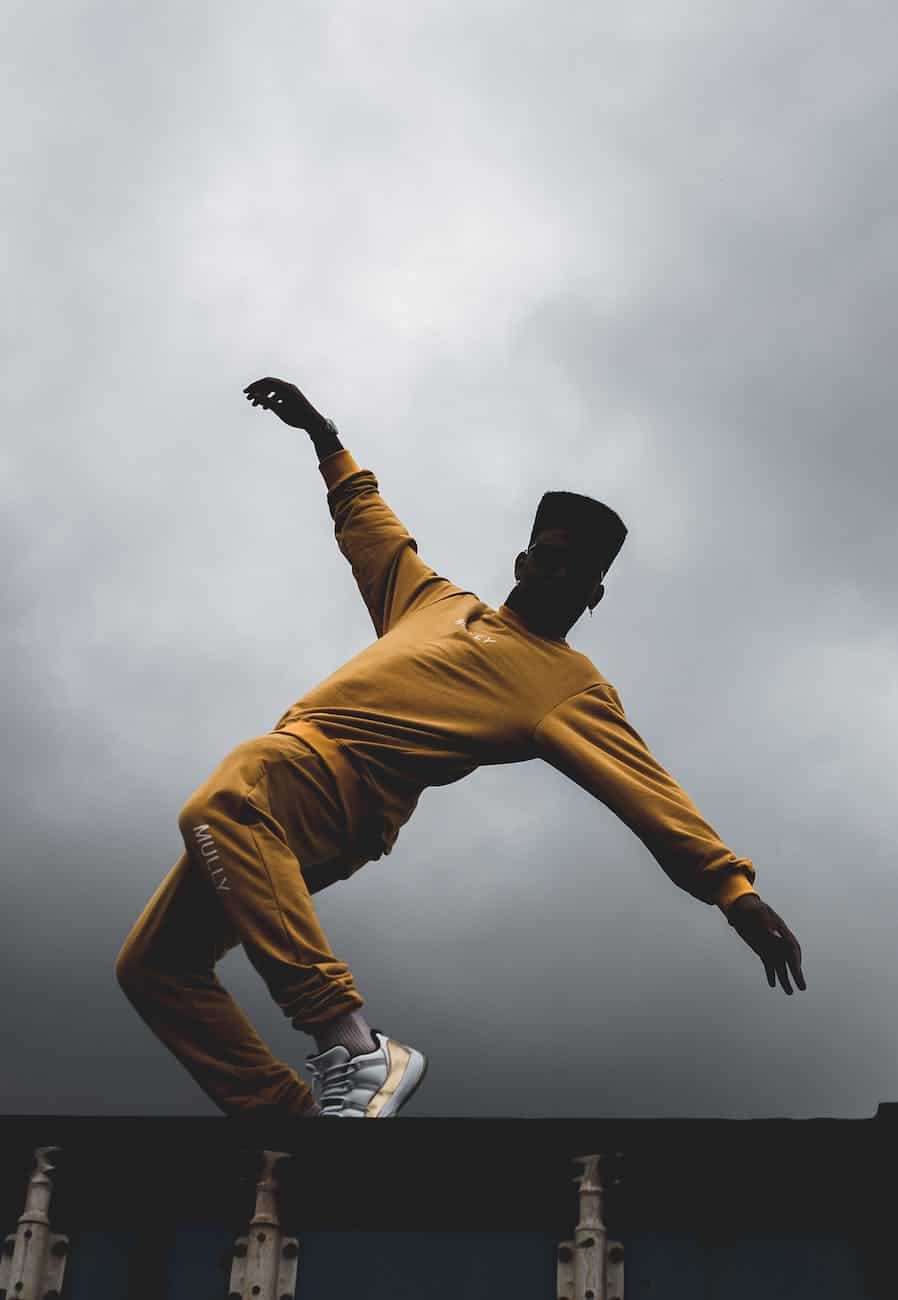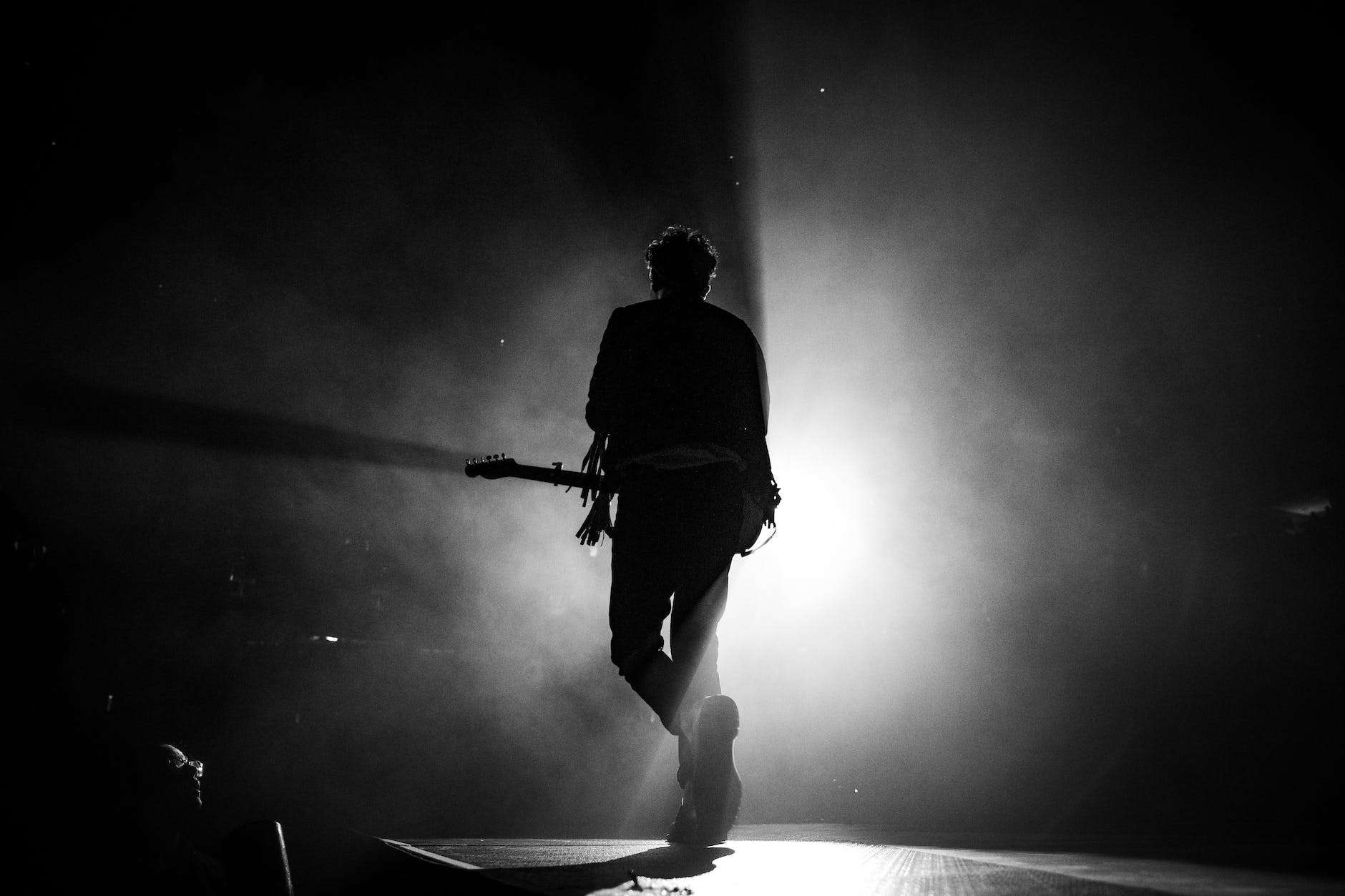Standing in the spotlight can be quite intimidating. It involves putting yourself out there for an audience and knowing that you need to give it your all. This can be a challenging task, especially if you struggle with confidence or focus. As a performance coach, I am here to help! Here are some tips to help you maintain high levels of concentration and confidence while performing.
Whether you’re an actor, singer, dancer or musician – feeling focused and confident is essential when it comes to delivering an impressive show. Letting fear get the better of you will only lead to disappointment and lacklustre results. To make sure this doesn’t happen, try using these simple strategies for keeping focussed and staying motivated throughout your performance.
By using techniques such as positive visualisation, deep breathing exercises and physical warm-ups before the show starts, you’ll create the conditions necessary for optimum success. These will allow you tap into your inner resourcefulness so that even those moments of uncertainty become opportunities for innovation and creativity. With these tools at hand, audiences everywhere will appreciate your ability to shine under any circumstances – no matter how nerve racking they may be!
Preparation
Performing is a daunting endeavor, so it’s essential to be prepared. Preparation for performance includes physical and mental rehearsal strategies, as well as nourishment preparation. To maximize your potential during the performance, you should take some time to focus on each of these areas before taking the stage or entering into competition.
Starting with physical preparation, it’s important that you give yourself plenty of time to warm up properly. Warm-ups help stretch out muscles used in the activity you are performing which can reduce injuries from overuse and fatigue. If possible, do several practice runs through your routine or whatever exercise you may be doing prior to going live on stage or competing against others. Practicing helps build muscle memory and will make executing movements easier when it really counts. You should also strive to get adequate rest leading up to performances and competitions; this could mean getting an extra hour sleep per night during the week before a big event.
Mental preparation is just as vital for success as physical preparation is. As performers we need to condition our minds by practicing positive visualization techniques before stepping onstage or onto the mat (or wherever else). Visualizing yourself being successful allows us to tap into resources that were previously unavailable due to lack of confidence or fear of failure. It allows us to become more confident in ourselves while creating better conditions for achieving peak performance levels throughout the entire presentation/competition process! Additionally, partaking in self-care activities such as yoga, meditation, journaling etc., can help clear your mind and allow space for creativity and improved concentration when needed most during a performance.
Finally, proper nutrition prior to a show/event cannot be overlooked either! Make sure you have eaten enough food beforehand but not too much – no one wants cramps occurring mid-performance! Eating foods high in complex carbohydrates like oatmeal or whole grains provide long lasting energy without weighing down digestion processes – something all athletes must consider! Also drinking enough water ahead of time is critical because dehydration can lead to decreased power output & even dizziness depending on how severe it gets so don’t forget about hydration – stay sippin’!
Positive Visualization
Positive visualization is an essential tool for maintaining focus and confidence during a performance. Visualizing the desired outcome of your performance can help you stay positive, focused, and confident in any situation. It allows you to create a mental image of success before you even hit the stage or field.
There are several ways to use positive visualization:
- Start by getting into a relaxed state of mind that’s free from distractions and negative thoughts. Create a vivid mental picture of yourself succeeding at your performance, with all its associated details such as colors, feelings, and sounds.
- Make sure to keep it realistic; don’t try to visualize something that’s impossible for you to achieve! The more specific and detailed your visualization is, the better prepared you’ll be when it comes time to perform.
- Finally, practice visualizing regularly so that it becomes second nature to you. This will ensure that when faced with challenging situations during performances, you’re able to maintain focus and confidence because you know what successful outcomes look like in your head.
Through regular practice sessions using positive visualization techniques, performers can learn how to manage their emotions while also creating an ideal outcome for themselves on the big day. By doing this they can increase their chances of achieving peak performance levels under pressure and reach their goals effortlessly.
Establishing Goals
Having already taken the time to visualize success, it’s now important to establish goals in order for a performance to be successful. Table 1 below lays out goal setting strategies that emphasize focus and confidence during a performance:
| Goal SettingFocus StrategiesEstablish specific, measurable goals before each performanceUse positive self-talk (e.g., “I can do this!”) or mantras (e.g., “One step at a time”) to stay focused on the task at hand and maintain confidence throughout the processBreak down larger goals into smaller, achievable tasksUtilize cognitive reframing techniques such as visualization and mental rehearsal in order to create an empowering narrative of success within oneself prior to performingSet realistic expectations according to one’s abilities and skillsetDevelop concentration habits through relaxation exercises such as meditation and yoga which will help strengthen one’s ability to remain alert and attentive during performances |
|---|
By following these simple steps, performers can set themselves up for success by establishing sound goals that keep them focused and confident while they perform. It is also essential for performers cultivate mindful awareness when striving towards their desired results; mindfulness helps eliminate distractions from external sources that may hinder their progress in achieving those results. With clear intentions, high levels of focus, and unwavering confidence in place, performers are sure find great success onstage.
Eliminating Distractions
When performing, it is essential to stay focused and confident. The only way to do this is by eliminating distractions. Here are some tips for reducing those distractions:
- Turn off all your electronic devices – phones, tablets, computers – as they can be a major source of distraction during performance time.
- Create an environment that helps you focus by keeping the space around you quiet and free from clutter.
- Make sure that any music or sound being played in the background does not interfere with your concentration and confidence level.
- Try to keep conversations limited to the topic at hand so that nothing takes away from focusing on what you need to do on stage.
By following these steps, performers will be able to keep their focus and stay on track while feeling motivated throughout their performance journey! Transitioning into relaxation techniques next can help further improve focus and reduce stress before performances.
Relaxation Techniques
Being able to stay focused and keep your confidence up during a performance can be a challenge. To help you maintain focus, it is important to find ways to relax before and after the performance. Here are some relaxation techniques that can help reduce stress and build mental resilience:
| Relaxation Techniques | Stress Relief Exercises | Breathing Exercises | Calming Activities | Guided Meditation |
|---|---|---|---|---|
| Yoga | Progressive Muscle Relaxation | Alternate Nostril Breathing | Coloring Books | Mindfulnes Mediation |
| Tai Chi | Journaling | Deep Belly Breathing | Nature Walks | Body Scanning |
| Qi Gong | Positive Self-Talk | Square Breathing | Reading | Mantra Recitation |
All of these activities have been shown to reduce stress levels, increase feelings of well-being and provide clarity for making decisions. Taking time in between performances for any of these activities will allow you to get into an optimal mindset for performing at your best. Additionally, nourishing yourself physically and mentally with healthy food, enough sleep and hydration will also improve how you feel on stage.
Nourishing Yourself Physically And Mentally
With performance comes pressure, and it’s important to nourish yourself in order to maintain focus and confidence. Nutrition is key for sustaining physical health – making sure you fuel your body with the right foods will help you stay energized during a performance. Mental health also requires attention; make sure to prioritize self-care activities such as yoga or meditation so that you can keep your mind sharp and prepared. Furthermore, restful sleep is essential when it comes to keeping stress levels low – allowing your brain to take a break from all of its hard work!
Taking care of both your physical and mental wellbeing are vital components of maintaining focus and confidence during any performance. By taking steps towards optimizing nutrition, incorporating mental exercises into our routine and getting plenty of restful sleep, we can ensure that we have the energy needed for peak performance. Let’s move onto rehearsal strategies which will further set us up for success on stage.
Rehearsal Strategies
It is true that preparation and rehearsal are essential for a successful performance. Rehearsal strategies, practice techniques, and preparation tips can help an artist maintain focus and confidence during their performance. When it comes to these important elements of the creative process, there’s no substitute for well-structured rehearsals and plenty of practice.
The right approach to rehearsal will involve more than just running through your material several times -it should also include developing skills such as controlling nerves, pacing yourself correctly and being aware of changes in energy levels throughout the performance. To ensure you’re ready on show day, use a combination of performance rehearsals and practice techniques like visualization or relaxation exercises to prepare mentally and emotionally. This could also include taking breaks from long practices to give yourself time to relax before returning with renewed enthusiasm.
Rehearsing properly will enable you to make any necessary adjustments quickly and efficiently – whether it’s refining technique or making tweaks to your set list or delivery style – so that when it comes time for the big event, you’ll be confident enough to take risks without compromising quality control. With this kind of regular practice, artists can feel empowered by embracing improvisation while still staying within their comfort zone at all times. Taking this mindset into every performance can lead to moments of unparalleled creativity which would have been impossible without adequate preparation beforehand.
So with some careful planning and mindful rehearsal techniques, performers can stay focused on delivering their best work even in high pressure situations; readying themselves for whatever challenges may lie ahead as they continue striving towards excellence in their craft. In exploring ways of developing self-awareness both onstage and offstage, they can begin building greater trust in themselves as creators over time too!
Developing Self-Awareness
Developing self-awareness is a key part of becoming a confident performer. Self-reflection can help you identify and better understand your strengths, weaknesses and emotional triggers during performance. Practicing mindful awareness helps build up emotional intelligence which will give you the insight needed to stay focused in any situation. Through inner exploration, it’s possible to get an idea of how certain situations affect you before they happen so that when it does occur, there’s less chance for distraction or disruption.
It’s important to recognize that although perfectionism is admirable, this pursuit can be detrimental if taken too far. Overly striving for perfection can lead to feelings of discouragement due to inevitable imperfections throughout performances. To prevent damaging negative thoughts from taking over during a performance, accepting one’s own mistakes and learning from them are essential steps for developing confidence in yourself as a performer. This involves allowing room for error without worrying about what other people think; instead focusing on improving technique with each experience.
Evaluating past performances critically while being aware of present capabilities provide valuable information necessary for growth in both ability and confidence—remember: no artist ever reached their peak by remaining stagnant! Embracing failure as an opportunity rather than something to fear allows performers to explore new possibilities while staying connected to their art form through honest self-evaluation.
Acceptance Of Imperfections
When it comes to performing, we all want perfection. We strive for that perfect note and perfect timing. But often times, our expectations are too high and mistakes happen. This can be incredibly discouraging which leads to a lack of focus and confidence while on stage. That’s why it is so important to accept imperfections as part of performance.
Embracing one’s flaws can help you stay focused during your performance by taking pressure off yourself. Instead of striving for perfection, allow yourself to make mistakes; this will help you keep calm when the nerves set in. When faced with an error or mistake, just take a deep breath before continuing onto the next phrase or measure. Acceptance of imperfection allows us to move forward rather than dwelling on past missteps.
Another helpful tip is to practice self-compassion in order to better cope with any errors made during a performance. Don’t beat yourself up over every little mistake – acknowledge them but don’t dwell on them! Recognize that everyone makes mistakes from time to time, even professionals, and understand that these moments could lead to something beautiful if given the chance. With acceptance and understanding of imperfection, fear of failure fades away allowing more creative freedom throughout performances.
Rather than seeing mistakes as failures, reframe them into opportunities for growth and learning instead.
Reframing Mistakes
When it comes to performance, mistakes are inevitable. It’s all part of the learning process! As a performer, reframing these errors is key for maintaining focus and confidence during a performance.
The ability to quickly recognize your mistakes and move on from them will help you stay in the moment and remain confident as you continue performing. Instead of getting discouraged or dwelling on what went wrong, think about how you can use this experience as an opportunity to learn. This shift in mindset allows you to develop strategies that prevent similar occurrences from happening again in the future.
By recognizing mistakes positively, instead of negatively, performers open themselves up to more creative solutions when it comes time for their next performance. Reframing mistakes should be seen not only as an opportunity for growth but also as proof that progress is being made and success is attainable with practice and dedication.
So rather than letting yourself get overwhelmed by any missteps along the way, take each blunder as a chance to improve upon your skillset while remaining focused and confident throughout your entire performance journey!
Frequently Asked Questions
How Can I Increase My Focus And Confidence During A Performance?
As a performance coach, I’m often asked how to increase focus and confidence during a performance. The key lies in the preparation you do before your show starts. Here are some tips to help you get mentally prepared for an amazing performance:
- Mental Preparation:
- Visualize yourself as successful on stage – positive affirmations can make all the difference!
- Reinforce your good habits such as regular practice sessions and good sleep hygiene.
- Take time each day to meditate or do deep breathing exercises to clear your mind and relax your body.
- Positive Affirmations:
- Acknowledge any fears or worries that may come up, then move past them with positive self-talk.
- Remind yourself of what it is that brings you joy when performing – this will boost both focus and confidence.
- Visualize being well-received by the audience; imagine their applause and cheers at the end of your performance!
- Practice Regularly:
- Spend time rehearsing your pieces so they become second nature; aim for perfection but don’t be too hard on yourself if mistakes happen.
- Practicing regularly also helps solidify muscle memory which can give you an edge over competitors.
- Set goals for yourself and challenge yourself each time you rehearse; pushing yourself outside of your comfort zone helps build resilience when faced with difficult tasks.
By focusing on these key points prior to a performance, one is more likely to stay focused and confident throughout their routine no matter what challenges arise along the way! These strategies have helped many performers take their shows from average to exceptional – why not give them a try?
What Strategies Can I Use To Stay Positive During A Performance?
Staying positive during a performance can be challenging. It requires practice, dedication and the right strategies to ensure you remain confident and focused throughout your performance. As a performance coach, I’d like to offer some advice that will help keep you in a positive headspace when it matters most.
The first strategy I recommend is positive self-talk. This means talking to yourself in an encouraging way about what lies ahead of you – focus on the positives instead of worrying about any potential negatives. Practicing visualization also helps by giving you something visual to ground yourself with before stepping onto the stage; imagine how great it would feel if everything went according to plan or better than expected. Positive affirmations are another powerful tool that can help to reframe negative thoughts in your mind and replace them with calming, reassuring mantras that give you confidence and reassurance before taking the stage.
Deep breathing exercises are also key for staying calm and composed during a performance – this helps slow down your heart rate so that your body isn’t taken over by adrenaline or nerves when performing. Make sure to pause between each breath as well, allowing for more oxygen intake which further relaxes your muscles in preparation for peak performance. Finally, setting achievable goals is essential too; make sure they’re realistic yet difficult enough to challenge yourself – this will give you purpose while helping motivate and encourage yourself along the way!
These five strategies should serve as excellent tools when aiming to stay positive during a performance. By practicing these regularly, both mentally and physically, you’ll have greater control over your emotions which will ultimately lead to increased focus and confidence levels regardless of where or who you’re performing for!
How Can I Prevent Myself From Getting Too Nervous Before A Performance?
I understand how nerve-wracking it can be to perform in front of an audience. It’s natural to experience pre-performance jitters, and you don’t have to feel alone if that’s happening to you! In this article, I’m going to provide some helpful tips for preventing performance nerves and building confidence before a show.
First off, try to identify what makes you anxious before your performance so you can develop strategies on how best to manage those feelings. Acknowledge the fear as normal but remind yourself that fear doesn’t have control over you – only YOU do! Write down positive affirmations about yourself and repeat them aloud or silently whenever you’re feeling overwhelmed by anxiety. This will help minimize performance stress and build up your self-belief.
Visualization is another great tool for overcoming performance anxiety. Before each performance, imagine exactly how it would look like when everything goes according to plan: from walking into the venue with poise and grace, delivering your song/speech flawlessly, all the way through until being greeted by applause at the end of it all. By doing this regularly, it’ll help reduce pre-performance jitters and make sure you stay focused on achieving success during your actual set time.
To sum things up, managing performance nerves isn’t easy but definitely possible with determination and preparation! Taking proactive steps such as identifying sources of anxiety, writing down positive affirmations or visualizing success are effective methods for minimizing stress while helping cultivate self-confidence ahead of any live shows or presentations.
What Techniques Can I Use To Remain Calm And Relaxed During A Performance?
Staying calm and relaxed during a performance is essential for getting the most out of it. There are several techniques you can use to ensure that your body and mind remain in balance as you perform, allowing you to focus on giving a great show. In this article, I will be discussing relaxation techniques, calming techniques, breathing exercises, positive self-talk, and visualization techniques — all of which can help keep nerves at bay so that you put on an amazing performance!
First off, there are many relaxation techniques available to help you stay calm before and during a performance. For instance, doing some light stretching or yoga poses can work wonders; these activities lower stress levels by releasing tension from the muscles. Additionally, deep breathing exercises also have proven effectiveness when it comes to reducing nervousness ahead of time. Taking long breaths through your nose while counting to ten helps relax both the body and mind.
In addition to physical relaxation methods like stretching and breathing exercises, there are mental strategies such as positive self-talk and visualization techniques that can help maintain composure throughout a performance. Positive affirmations or mantras remind us that we’re capable of achieving our goals no matter how daunting they may seem. Visualizing success beforehand allows us to remember why we chose to do what we’re doing in the first place—to create something beautiful with our artistry! Ultimately, having confidence in ourselves makes it easier for us not only to enjoy performing but also give audiences more compelling performances every time.
As a performer coach, I highly recommend experimenting with different approaches until finding one (or multiple) works best for each individual artist’s needs. Whether it’s stretching, deep breathing exercises, positive thinking or visualizations – whatever brings about peace of mind should always be used prior to taking the stage! With practice and dedication even the biggest butterflies can master their fear so they get back into their creative element once again in front of an audience.
How Do I Stay Motivated To Deliver My Best Performance?
When it comes to delivering your best performance, staying motivated is key! As a performance coach, I know that motivation techniques can make or break a show. It’s essential to take the time to find what works for you and practice those methods regularly so you stay focused and confident throughout any performance.
Firstly, having a positive attitude is absolutely crucial in keeping yourself motivated. Acknowledge the effort you have put into preparing for this moment and focus on celebrating your successes instead of dwelling on potential failures. This will help keep your energy up during the performance itself.
Secondly, have realistic expectations about your performance. Don’t expect perfection from yourself; celebrate each step forward as an accomplishment – even if it’s just one small thing. And don’t forget to reward yourself after a successful show! Here are some ideas:
- Get out of your comfort zone by trying something new or taking a fun class
- Challenge yourself with different activities outside of performing (e.g., learning a new instrument)
- Spend quality time with friends and family who encourage you
- Take breaks away from practicing/performing periodically
Finally, create goals and objectives that are achievable yet still exciting enough to push you further along your journey towards greatness. Visualize success ahead of time to give yourself extra incentive before performances – imagine how amazing it would feel when all eyes are on you nailing every note perfectly! Ultimately, these tips should help ensure that when its time for showtime, you’ll be ready to deliver an unforgettable experience.
Conclusion
As a performance coach, I understand how important it is to maintain focus and confidence during a performance. It can be difficult to stay positive when the pressure of performing in front of others starts to set in. However, with the right strategies and techniques, you can ensure that your performance will always be at its best.
Research suggests that taking deep breaths before beginning a performance helps reduce anxiety levels by up to 30%. Taking just five minutes of quiet time before starting any performance can help clear your mind and give you the mental strength needed for success. Additionally, visualizing yourself succeeding on stage or imagining the audience applauding after your performance are great ways to remain motivated throughout your show.
Finally, remember that practice makes perfect! Practicing regularly not only ensures that you know your material inside out but also builds up your confidence over time so that each performance feels like second nature. With enough dedication and discipline, maintaining focus and confidence during performances becomes much easier.










